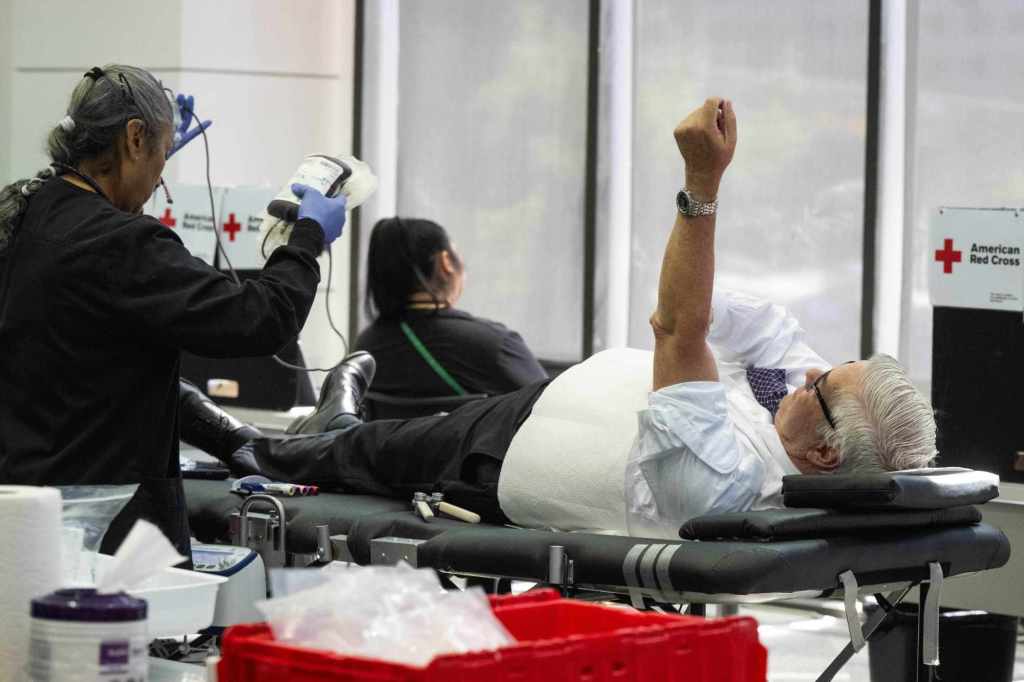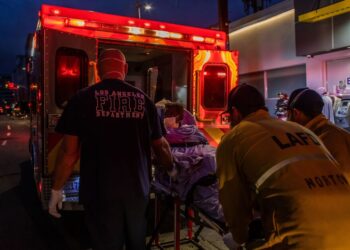At a recent blood drive in downtown L.A., Los Angeles area resident Terry Brown was both excited — and nervous — to donate blood for the first time in decades.
It was Brown’s first time to give blood since the U.S. Food and Drug Association and American Red Cross relaxed its decades-old policy on how individual donors are assessed, making the questions more inclusive regardless of sexual orientation, sex or gender. The new rules took effect in early August.
“For myself, this is really an opportunity to reengage with the broader community of Los Angeles. I view giving blood as helping all of my fellow citizens; not only the LGBTQ community, and that’s an important thing to recognize,” Brown, 62, said. “I think we could have gotten here a little bit sooner, but I’m thrilled that we are here now.”
The last time Brown had given blood was in 1983, in his early 20s in L.A.
Now Brown helps organize blood drives regularly, as part of his role as a Chief Human Resources Officer with L.A. Care, a health plan provider serving over 2.9 million families in the region. On Tuesday, August 21, L.A. Care hosted its first blood drive since the policy was changed.
“This will be the first time in decades that I’ve been able to donate blood at my own blood drive, and I couldn’t be more excited,” said Brown before his morning collection appointment on Tuesday. “The criteria have, in my opinion, become more sensible given where we are with technology, and I’m thrilled that the FDA relaxed the guidelines…. they finally realized it was limiting donations from a giving community, a community that likes to give and support fellow citizens.”
For nearly four decades, guidance from the FDA banned most gay men from donating blood, regardless of health history — criteria many critics called discriminatory to the LGBTQ+ community. The policy was created early during the HIV/AIDS epidemic in the last century, when health officials estimated that 70% of…
Read the full article here







